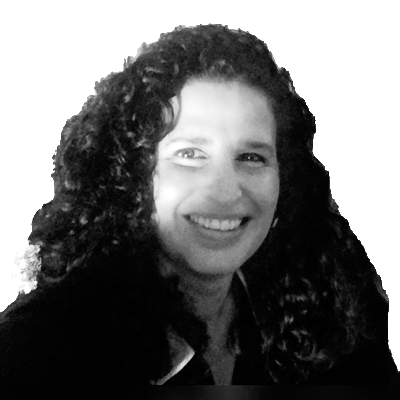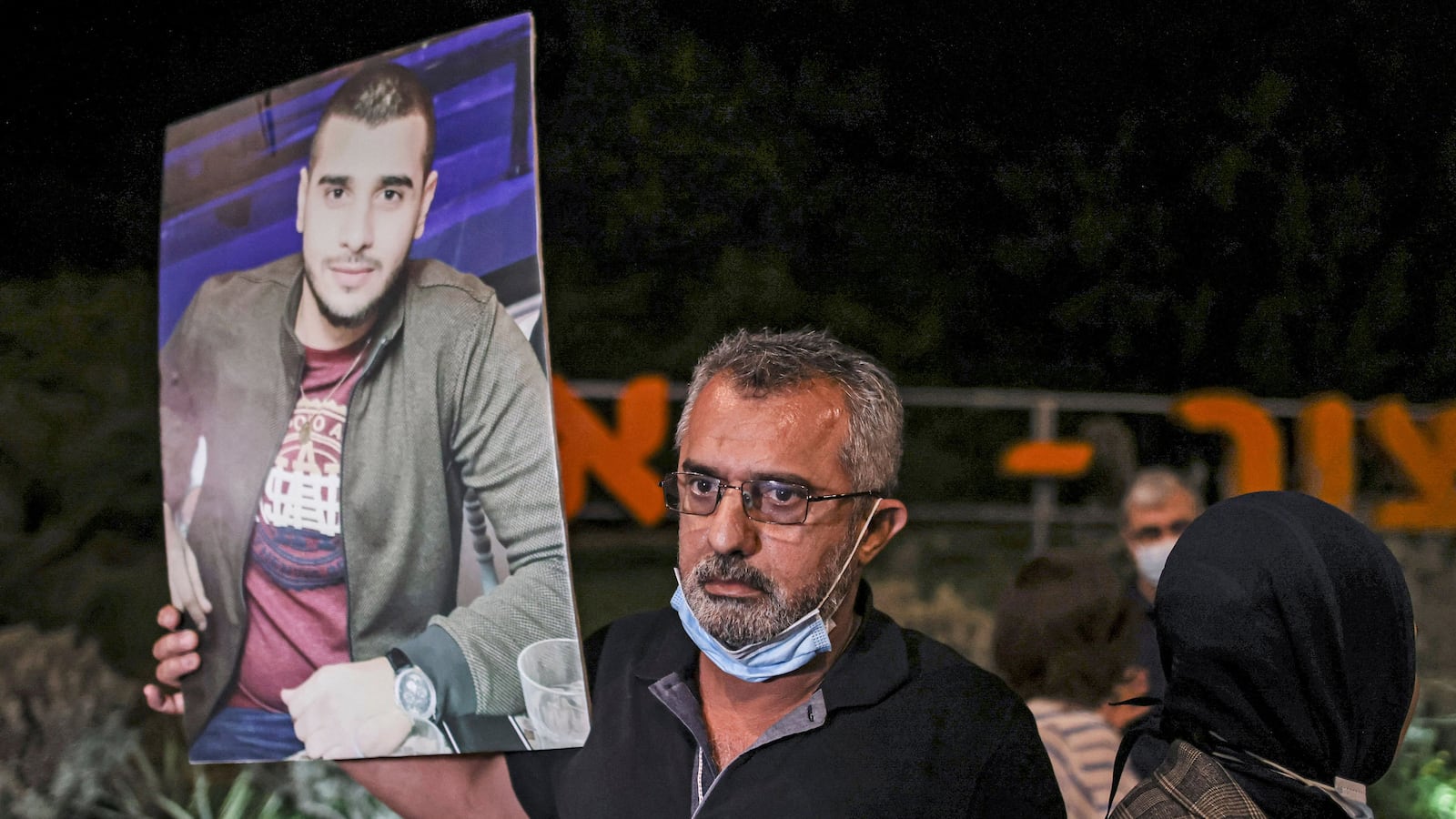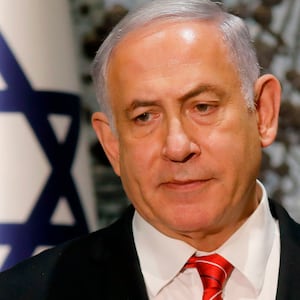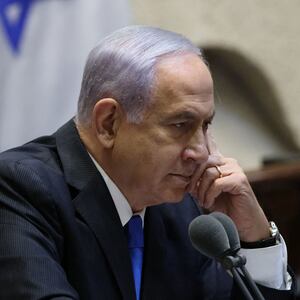JERUSALEM—Benjamin Netanyahu has been out of office for all of 110 days, but for Arab citizens of Israel, post-Bibiism has become the era of emancipation. Decades of Arab community leaders have failed to inspire change in the country, leading to frustration, disenchantment and a growing social chasm between the mainstream Jewish experience and minority Arab lives.
Since the start of 2021, almost 100 Arab citizens of Israel have been killed in street violence made possible by years of police abandonment of Arab communities, coupled with the lack of demands made by increasingly sectoral leaders, who preferred handling informal law and order on their own terms.
Now, the leading hashtag on Israeli social media is #ArabLivesMatter. “The inspiration is from the Black Lives Matter movement, but it’s important to note that the violence in Arab society in Israel is not brought on by the police or law enforcement, it’s between Arabs,” Sheren Falah Saab, an author of the Hebrew-language version of the hashtag, told The Washington Post. “It’s important to say there’s neglect and lack of enforcement by the police, and lack of follow-up when murders are committed.”
Netanyahu will never shed the stain of his desperate 2015 election day cry, posted on Facebook, exhorting supporters to head to the polls because “the Arabs are being bussed to the voting places in droves!” But the illegal move of electioneering on voting day—for which his Likud party was forced to pay a fine—marked the last vote he won outright, and proved to be a watershed in Israeli society.
Arabs could no longer be ignored. Like other young activists, Fadi Maqlada, a prominent political commentator and one of the authors of #ArabLivesMatter, is calling on Israel to employ its once dreaded internal security service, the Shin Bet, to help tamp down the spike in violence in Arab towns and cities. And he does not spare Arab communal leaders, who are viewed as having wasted valuable political currency for personal political glory, or to champion Israeli-Palestinian diplomatic channels, instead of investing in their own communities.
“Local leadership has a critical role to play, and it is to ‘normalize’ the police and other state agencies so as to eradicate crime, and not to act as barriers or obstacles to the national authorities. It is a critical task that may see them defying their own base, but they have to face it,” Maqlada told The Daily Beast. “I support employing and assisting the Shin Bet for this purpose, but only using technological means, just as was done during the corona crisis—but not the full use of the Shin Bet as it is used in the [occupied Palestinian] West Bank, to recruit collaborators.”
The absence of any order, and the consequent impunity, are primary motors of the growth in violence. More than 70 percent of murders in Israeli Jewish communities are solved by the police, but in the Arab community, the number sinks to 23 percent.
Political activist Afif Abu Much says that despite rising murder rates, the police “act helpless in the face of raging violence that has turned Arab communities into a Wild West.” Even the newly installed and much celebrated police stations in the large majority-Arab cities, he says, are being used principally to handle complaints from angry neighbors or pissed off business partners, and not to devise a strategy to fight the “nightmarish everyday reality” of shootings and armed robberies in otherwise prosperous residential localities.

Women demonstrators cross a street with a banner showing the faces of victims and text in Arabic reading "cry of anger, enough killing" during a protest by Arab Israelis and activists against the government's insufficient action towards rising violence levels within the Arab community, outside the home of Public Security Minister Omer Bar-Lev in the northern Israeli town of Kokhav Yair on September 25, 2021.
Ahmad Gharabli/GettyOn Sept. 11, the cat-and-mouse game between criminals and police took a dangerous turn when gunmen fired bullets at the home of Deputy Police Commissioner Jamal Hakroush, the highest-ranking Arab officer on the Israel police force.
The violence, much of it random, has become something of a meme, with evening broadcasts on slow news days delivering item after item about “more Arab community gunfire,” none as clickable as the short-lived flareup of Jewish-Arab violence in May, that drew the attention of the world’s media.
Abu Much believes that part of law enforcement’s desertion of Arab communities was purely political.
Friday, Oct. 1, marks 21 years since the ‘October events’ in which 13 Arab citizens were killed by Israeli police during riots sparked by growing tensions between nationalist Arab-Israeli politicians and the police. “After October 2000,” Abu Much said, “the police closed its eyes to illegal firearms in Arab communities. It stopped people talking about Palestine, Palestinian rights. When someone close to you is murdered, who cares about Abu Mazen [Palestinian president Mahmoud Abbas]?”
In 2021, the Abbas on Israelis’ lips is Mansour Abbas, leader of the Israeli Islamic Movement and strange partner of Prime Minister Naftali Bennett, a right-wing nationalist who opposes Palestinian statehood, in the rainbow coalition that replaced Netanyahu in June.
On Friday, Mansour Abbas announced that Bennett’s promised visit to the Galilean city of Umm al-Fahm would be delayed to next week “out of respect for the shahids [martyrs]o f October 2000.” Netanyahu’s Likud party jumped on the announcement as a “disgrace that will never be forgotten.” In a statement, Netanyahu’s party, now in the opposition, said, “there is no bottom line that Bennett will not descend to for the sake of his political survival, which depends on Mansour Abbas.”
But Abbas’ leading role in the Israeli political sphere appears to have opened the dam for Arab citizens of Israel, even those deeply opposed to his conservative views, to demand greater involvement in the nation’s political power structure. In this, they are being joined by a growing number of Jewish allies taking to the streets to demand equal basic civil services for Arab citizens.
The Islamic Movement’s participation in Israel’s coalition of 61 out of 120 parliamentary seats is so critical that Haaretz, the liberal daily, warned that “Israel’s government can solve the Arab crime epidemic—or become one of its victims.”
The straw that broke the camel’s back was not the daily drip of news about another shooting, or another murder, but the recapture of six Palestinian prisoners who escaped from one of Israel’s top security prisons last month. They were found and arrested within two weeks, without incident—with the help of Arab citizens who called the police when approached by the fugitives for help.
Falah Saab, a journalist and activist, said in a conversation with The Daily Beast that, “We decided to push it after two people were murdered in a single day. And those prisoners had been caught like nothing. Are you kidding me? Dangerous terrorists are easy to pick up but guys with makeshift guns shooting people up are impossible for Israeli police to find?”
“If you will it, it is not a dream,” Abu Much said, ironically recasting the famous phrase of Israeli founding father Theodor Herzl to describe the establishment of a Jewish state. “They just didn’t care about catching criminals attacking Arabs,” Abu Much said. “And your average Arab criminal knows it. So why not?”
Following the young activists, Police Minister Omer Bar Lev adopted their hashtag on his official Twitter account, as part of his commitment to act to reduce violence in Arab communities.
Speaking off the record, a senior police officer not authorized to address the subject publicly told The Daily Beast that, in addition to a lack of civic education in the Arab school system, years of underfunding and Netanyahu’s attacks against the police—who investigated the then-premiere for crimes of corruption for which he is now on trial—undercut recruitment and significantly impeded the police’s ability to act within Arab communities.
“There is major burnout, anger, and a lack of leadership,” he said. “That isn’t helping the police.”








